Mykolaiv Regional Military Administration Head Vitalii Kim: "People refuse to leave under shelling and it is very difficult to relocate families"
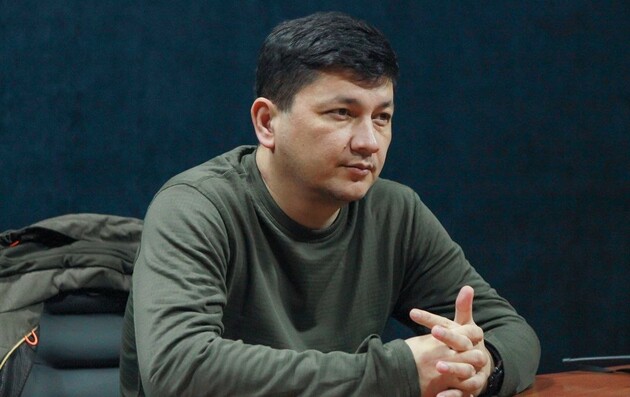
Every morning after the start of the full-scale invasion, the head of the Mykolaiv military-civilian administration, Vitalii Kim, greeted Ukrainians from their smartphone screens. Brief messages about the situation in the city and the region, which the governor recorded, not only gave an understanding of what was happening on the southern front, but also encouraged Ukrainians in the first months of the great war. Vitalii Kim became a national hero: the whole country discussed the color of his socks, and some even bought home pillows with his image.
However, the media image of the Mykolaiv Regional Military Administration Head is somewhat different from the way he communicates in real life. Vitalii Kim is rather a serious and restrained person. He does not say more than he is asked, and is very cautious about commenting on anything beyond his direct influence or regulation. Kim is a loyal member of President Volodymyr Zelenskyy's team.
After the liberation of Kherson, which, in fact, covered Mykolaiv, we decided to ask the head of the Mykolaiv Regional Military Administration how the region is currently living, how the local government copes with the challenges of the war, what it spends money on, how it communicates with communities, and what reconstruction plans it has for future.
About shelling, electricity, expenses on roads and assistance of the Armed Forces of Ukraine
— Mr. Kim, the liberation of Kherson is a very important event for Mykolaiv, because it was from there that you were shelled. How much less has the shelling of the city become after November 2022?
— After November 11, Mykolaiv was shelled twice: on December 8 and 31. However, Ochakiv and the Kutsurub community are still under constant shelling. There was only four days of silence there during these months. Three more of our settlements on the Kinburn spit are under occupation.
— If we sum up for the year, what are the figures regarding shelled civilian and military buildings in Mykolaiv and the region?
— We do not comment on military infrastructure. As for civilian objects, there are up to two thousand objects that have already been hit several times. Therefore, if we exclude repetitions, then in the region somewhere around 12 thousand objects of civil infrastructure were destroyed or damaged.
.jpg)
— Regarding the power outages that occurred throughout Ukraine, and in Mykolaiv as well. Before and after November 11 (as people were returning to both the region and the city), to what extent did you reduce electricity supply? After all, you previously said that there were days when electricity was not turned off at all.
— Yes, it is true, it was so. We do not set limits ourselves, they are assigned to us. This is about half of the pre-war power. However, due to the fact that the industry was greatly destroyed and, as a result, the consumption of electricity decreased by a factor of five, we were able to redistribute this power for the people. Therefore, the situation in the region was a little better than in the country, but for a very sad reason.
— We are talking with you after the anniversary of the beginning of the great war. The Russians are in a hurry to give the dictator a gift and go to the borders of Donetsk and Luhansk regions by March 31, so March promises to be a tough month, and not only in these territories. Are you expecting aggravation, escalation, shelling of your city and region?
— Such a shocking offensive or events that happened a year ago, on February 24, can no longer happen. After all, we have been living in this new reality for a year. We are more collected and ready. However, I can say for my region that we do not see the ability or the power of the Russian military to do anything but launch missiles at critical infrastructure.
— About readiness. "Dzerkalo Tyzhnia" recently released a material about how front-line regions spend regional budgets on roads, security, and armaments of the Territorial Defence Forces. It contained very strange data about a number of regions, but not Mykolaiv. Can you share the figures for the budgets for security, armaments of the Territorial Defence Forces and road repairs for the year? What are your priorities? Roads, or Armed Forces of Ukraine?
— Let me remind you that capital construction is currently impossible, only road maintenance is possible. That's why we concentrated on the roads, the data about which was given by the military. Military operations were taking place on our territory. However, now we can already say that we did one road three times, because it was the main artery through which equipment passed, and it degraded very quickly.
As for budgets for assistance to the Territorial Defence Forces or the Armed Forces of Ukraine, it is worth noting that Mykolaiv region was lucky in this matter. We have met almost all requests with the money of volunteers and businesses. There was information that, perhaps, there will be benefits for military personnel from personal income tax for the entire amount, that the military will generally become non-payers of personal income tax, and this would significantly worsen the state of local budgets, because most of it goes to the budgets of communities. We almost didn't spend money from the budget, but carried it over to this year, because we thought we might run out of money. Therefore, Mykolaiv region was very economical in 2022 and spent money mainly on items related to wages. It is worth noting that we closed other items with volunteer help.
— Can you say the numbers?
— We responded to requests, this is not a secret. The money will not disappear. It will be used exclusively for things that are needed by the military or critical infrastructure. We only deal with these issues, and there are no new projects at the moment.
— And yet, at the moment, information on the costs of Regional Military Administration is not very transparent, but perhaps you can name the ratio of these costs: 1:1, 2:2 or 3:4?
— There is no such thing. From memory, I can say that approximately 100 million hryvnias were spent from the reserve fund to help the military. However, I know that we have a large reserve of power that we must keep in order to carry out the tasks of government. For example, in relation to energy and strengthening of energy security... We have things to do and things to spend money on, and we will do it.
— The amount with which the volunteers helped is more than 100 million hryvnias?
— I will not answer this question, because I am sure that the sum is bigger.
— Will you answer the question about roads, is the amount more or less than 100 million hryvnias per year?
— I don't know if it is more or less per year. I can tell you which roads we built and for what funds. For example, four roads, two of which were needed by the military, were built by the business for free. That is, the contractors who worked for us before the war took their crushed stone and poured the entire road so that the machinery could pass. In addition, we started signing contracts and paying them when they ran out of money and materials. Business took a very responsible approach to military tasks.
About people on the line of fire, reconstruction and drinking water
— Regarding Ochakiv, which continues to be shelled. Have you thought about evacuating the children from there, perhaps with their parents, because they are periodically wounded by shelling? Perhaps it is possible to evacuate people, at least somewhere within the boundaries of the region, not beyond it.
— A very logical question, but from a person who has not tried to do it herself. The thing is that people refuse to evacuate, and it is a very difficult process to relocate families. The parents of our special forces, for example, also live in Ochakiv, and they cannot persuade them to move. Even when there is a place to move to, and it is not far away - in Mykolaiv, they refuse. This is a very difficult question, which is already a year old.
There are villages that have been destroyed by 70-90 percent. For example, one of such villages is Kyselivka. When we were going to Kherson on the 11th, we saw that children had come out... many children. They stayed with their parents in the basement for almost eight months and did not want to leave under any circumstances. We evacuated everyone who agreed to it.
— Is Kyselivka in Kherson region?
— It is between Mykolaiv and Kherson.
— You once mentioned that you determine the number of people in a city based on the consumption of water, electricity, and the volume of household waste removal. Did people begin to return to Mykolaiv after the liberation of Kherson? And, if you can operate with some numbers, how many are there?
— The answer to this question can be found out by the number of mobile phones. Now there are 400,000 active subscribers in Mykolaiv.
— How many subscribers were there before November?
— Approximately 280 thousand. And by February 24, 2022, there were 470 thousand subscribers.
— Almost everyone has returned.
— We have approximately 30,000 people from Kherson.
— I was in Dnipro after the tragedy, when a Russian rocket hit a house and an entry section collapsed. I was there at the time when a special assessment of the building took place for those people who had absolutely nothing left, or where windows were broken or a wall was destroyed. Tell me, please, on what scale this procedure takes place in your region? What are the approximate numbers for houses that people cannot live in?
— This procedure takes place throughout the country. People filed applications in the "Diia" app, this process is recorded by the police, and all data on damage is entered into the database. In addition, the database receives information about completely destroyed houses. We do not now do an examination when there is not a single wall left: it is clear that it is impossible to live there. Estimates of financial losses in order to be able to compensate are not made, because there are currently no procedures. (The law on compensation was only recently adopted. — T.B.)
We also carry out point-by-point examinations of buildings that can be used: whether it is safe for people or not. For example, institutes and administrative buildings. This work is in progress. Now the number of shelling has decreased, we are catching up with the schedules.
— It is known that the government allocated money from the Reserve Fund in the summer and autumn of 2022 for current repairs of damaged buildings. However, there is very little money. How much did you receive from the Reserve Fund? How many percent of people out of 100 received help from the state?
— 26.6 million hryvnias have been allocated from the regional budget for emergency restoration work at facilities damaged as a result of the armed aggression of the Russian Federation. In addition, 8.6 million hryvnias worth of construction materials were purchased, necessary for urgent restoration works at the facilities of Bashtanskyi and Mykolaivskyi districts.
In addition, at the expense of a subvention from the state budget, the regional budget (through Ukrzaliznytsia) received construction materials for priority emergency and restoration works in the amount of 220.5 million hryvnias.
— Is there a special fund in the regional budget, the purpose of which is to compensate people whose houses were destroyed? Maybe it's not a fund, but a budget item.
— This is a mass phenomenon: the International Federation of Red Cross also helps, foreign partners and our budgets help. The main issue that we tried to solve in time is construction materials. This means that we had to form reserves before winter. Thanks to such reserves, when many roofs and windows were damaged in Ochakiv, aid was sent the very next day, we did not make purchases and did not wait. People who have such a financial opportunity carry out repairs themselves. It is worth noting that now, if you drive through the Mykolaiv region in the direction of Kherson, you will see roofs covered with a film. There is no slate on the roof. This situation has arisen because the plant fails to produce a sufficient amount of slate. We are trying to cover the roofs of houses with corrugated board. These are works that allow people to live in the building and prevent further destruction of the property.
— Can you tell the sum from the regional budget that was allocated for the reconstruction of buildings?
— First of all, funds from the regional budget are allocated for the restoration of critical infrastructure. So, about 26.5 million hryvnias have been allocated for the restoration of damaged hospital facilities. To help citizens, 8.7 million hryvnias were allocated from the regional budget for the purchase of construction materials. These funds are in addition to the procurement funds provided by the state budget, which were transferred to communities for emergency and restoration work on their homes.
— I can't help but ask you about the water supply in Mykolaiv. Is it possible before the complete de-occupation of Kherson region that the houses and apartments of the city residents always have drinking water?
— It is no longer a secret, we restored the water supply. However, due to the shelling of Kherson region, due to electric cable cuts, we constantly have problems with the water pumps. Therefore, we have to make emergency repairs, switch the water supply and so on. If the Russians had not fired, there would have been drinking water a long time ago.
— Where is drinking water brought to Mykolaiv from? Who brings it?
— Drinking water is brought from everywhere. Initially, in April, water was delivered from Odesa and other cities of Ukraine. There was help from the International Federation of Red Cross, the UN mission, other humanitarian missions and foundations. At the same time, we started making wells all over the city. Subsequently, thanks to the help of various countries, including Denmark, water purification stations - special systems based on reverse osmosis - began to be opened in the city. In addition, water can be bought or ordered home, all these services are available in the city. Currently, the debit of water reserves for citizens exceeds the needs.
Three weeks after the pipeline damage, we have already started technical water in Mykolaiv. For more than a month we have had, shall we say, unsalted water. However, due to the constant shelling of Kherson by the Russians, we occasionally have to run saline, i.e. technical water, into the network.
— Last year, the general director of the utility company "Mykolaiv Vodokanal" Borys Dudenko commented: "Due to the filling of the water supply system of Mykolaiv with salt water from the Dnieper–Bug estuary, pipes throughout the city were damaged by corrosion. In total, more than 240 kilometers of pipes need to be replaced." Do you plan to allocate funds for this? And do you have a renovation plan?
— Yes, there is a plan. Currently, three projects are ready, and there will be about 12 of them. This requires approximately three billion hryvnias. We are talking about allocating part of the funds from the state budget, because the local budget will not be able to cover this amount of expenses. We really hope that in March, after the distribution of funds, the money will be allocated and we will start restoration work.
— In August, you had a meeting with partners from Denmark, who presented the city reconstruction program. Has the implementation of this program begun, and what have you singled out as a priority for reconstruction?
— A small correction: it was we who presented our vision for the restoration of the region, and Denmark agreed to help us. We have divided these assistance questions into urgent, medium-term and long-term. Now there is a center that interacts with Denmark. This country plans to open an emergency consulate in Mykolaiv to do the planned thing.
In general, Denmark has already helped Ukraine. From memory, I can say that the state was given about 200 million euros. There was also equipment that went to other regions. As for Mykolaiv, we asked not to give us money, but to buy and bring materials. Somewhere around eight million euros worth of materials arrived, including the pipes that were being repaired. Mostly, these were building materials specifically for the restoration of buildings and homes in the private sector. The interaction goes on. The procedure is already underway, and we are deepening our cooperation.
— In the context of the project presented to the partners: do you, as the regional authority, choose the houses for reconstruction yourself? Can any of the communities independently apply for reconstruction? Is there a procedure for submitting such applications? How does the process of choosing a particular house take place? It is known that the private sector was completely removed from the list of government assistance because the compensation bill was blocked.
— There is a preliminary procedure. Now people are applying for refunds, they are all pooled. However, we are not engaged in the reconstruction of houses in the private sector. Perhaps now there will be one high-rise building where people need to be resettled. First of all, we restore critical infrastructure facilities: hospitals, schools, kindergartens, things that were destroyed and need restoration. That is, we choose those objects that are urgently needed to be restored now. After all, we understand that all destroyed buildings cannot be submitted and selected for the reconstruction project. If we restore one particular house, people will say: "Why didn't you restore the other one?".
— Answering the previous question, you said that the materials went to the private sector. That is, these were donor programs?
— Yes.
About collaborators, the Civil–Military Administration and the role of local elites
— Last July, you announced the closure of entry and exit from Mykolaiv in order to find collaborators who were directing Russian missiles at the city. What are the results? I read that criminal cases have been opened against 20 people. Was it your initiative, or the law enforcement officers?
— It was an operation of law enforcement agencies. About 68,000 addresses were processed.
— Within a week?
— 68 thousand addresses within a week. About 600 law enforcement officers and a group of about a hundred people worked. About a thousand collaborators fled the city. We were ready for this, let them go, so as not to disturb. It is worth noting that Mykolaiv region now occupies a leading position in the field of treason and collaboration (cases. — T.B.). There is almost no information from the occupiers about Mykolaiv region.
— This is the first time that I hear this figure - 68 thousand.
— Now we can talk about it.
— Mr. Kim, a question about reforms and values: Should Ukraine continue the decentralization reform during wartime?
— This is a difficult question. I will answer without answering. If we take the models of democratic countries that are successful now, for example, Singapore or South Korea, the rules were built through the central government, through leadership, through the vertical of power. Then this system, which is already working, without corruption, is transferred on a democratic basis by decentralization. What concerns martial law is a decision not at my level, it should be made by the Verkhovna Rada of Ukraine, the government and the president.
— The authorities are preparing amendments to the law on military-civilian administrations, which will further expand the powers of the president, including the practice of single-person appointment of heads of community military administrations. Don't you think that perhaps this practice will lead not only to a departure from decentralization of power in Ukraine? Following the example of the civil–military administrations of Donetsk and Luhansk regions, which at the first stage of the war turned from temporary into the most closed permanent structures?
— I am not aware of this bill.
— Perhaps you are aware that you can become a prefect if draft law No. 4298 is adopted?
— This was discussed two years ago, the state supervision of the acts of local government is at the final stage of decentralization.
— Do you think prefects should be subordinate to the Cabinet of Ministers of Ukraine or the President?
— I don't know, I don't care how it will work, I have tasks and powers, and I work according to the law. If something does not suit me, I will resign.
This is the decision of the MPs, our people’s deputies, who work it out, calculate all the risks and determine how we will move and develop further. This is not a question for me, I am just an executive branch.
— Yes, after all, executive. Thanks for the answer. Now, a question about local elites, namely, the already banned pro-Russian Opposition Platform – For Life. Its representatives had influence in the region, had business in Mykolaiv, fought for power at the local level. After the full-scale invasion, did you have any meetings with Vladyslav Chaika or Igor Dyatlov? Maybe they somehow communicated with you? Wanted to help? Or vice versa...
— Not with Vladyslav Chaika. I met Igor Dyatlov once, he did not actively help, but, let's say, our special services controlled all representatives of the government from banned parties and monitored their actions. One of them fled abroad, there were no legal grounds to stop him. All others operate in the legal field. The other day, the police also arrested one not very influential citizen, but we are monitoring this situation in the region.
— Dmytro Razumkov has roots in Mykolaiv. Is he currently helping the city or region?
— I spoke with him on the phone twice, I think. These conversations took place in 2019 and 2020.
About political roots, interaction with the Office of the President of Ukraine and information policy
— In one of your interviews in December of last year, you said that the former deputy head of the president's office, Kyrylo Tymoshenko, was "your direct supervisor." Can you explain what you meant then?
— Kyrylo Tymoshenko was the deputy in the president's office for regional policy, and now he has been replaced by Oleksiy Kuleba, who communicates with the heads of the Regional Military Administrations and gives tasks from the president's office.
— Have you known Davyd Arakhamia for a long time? He is also from Mykolaiv.
— I have known him for a long time, but we started cooperating after the presidential elections.
— Who involved you in the election campaign of the "Servant of the People" party in Mykolaiv region? From whom did you get an offer to join the team?
— My wife. She said: "Do something useful," and I volunteered at Zelenskyy's headquarters.
— Whom did you directly address there?
— Oleksandr Rozumnyi and Vyacheslav Rudyi. There was a small headquarters, two rooms and volunteers.
— Who and when introduced you to President Zelenskyy?
— He came here for the presentation of the team, and then we met, because I was one of the team members.
— You recently declared your support for the former employee of the Ministry of Defense Oleksandr Liev, about whom the Anti-Corruption Center, considering his activities until 2014, wrote that he had pro-Russian views. Why did you decide to support him?
— I could not help but support him, because we knew each other even before 2014, and I remember how he left Crimea with the team: then many people left who did not want to cooperate with the Russians. Then we didn't talk for years. However, when the war started, it was with Liev's help that we got weapons very quickly. In addition, he made a lot of efforts to ensure that Mykolaiv region was armed. I am personally grateful to him for this work. That's why I supported him, because I don't care: everyone can make mistakes, but when help was needed from him in that position, he helped Mykolaiv region, and for that I am grateful to him.
— I will not reveal a secret when I say that you are a very recognizable person in Ukraine. People with social capital like yours are usually included in election ratings in peacetime. However, at a certain moment you seem to have disappeared from the media field. Did you have a conversation with someone about not taking such an active public media position? Maybe with Kyril Tymoshenko or with someone from Bankova Street?
— No, there were no instructions. The reason for the decrease in media activity is that I don't just talk for the sake of talking, to increase my rating, I don't care about it. During the first phase of the war, there was a task and a need for the region to remain informed, for people to work, to help the army, including the military, who needed information and support. We also worked targeting the occupiers so that they would have a bad mood. Now, public speeches are no longer needed on such a scale, because the all-Ukrainian information system is already working. It's very cool how all of Ukraine is now united in the information field. That is, today there is no need to actively make speeches. I can't go out and just entertain people because I work too much. Personally, I don't think that I need to appear in the media space very often anymore.
Read this article in russian and Ukrainian.
Please select it with the mouse and press Ctrl+Enter or Submit a bug











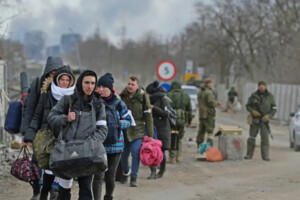
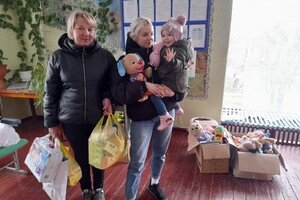
.jpeg)

.jpg)
.jpeg)

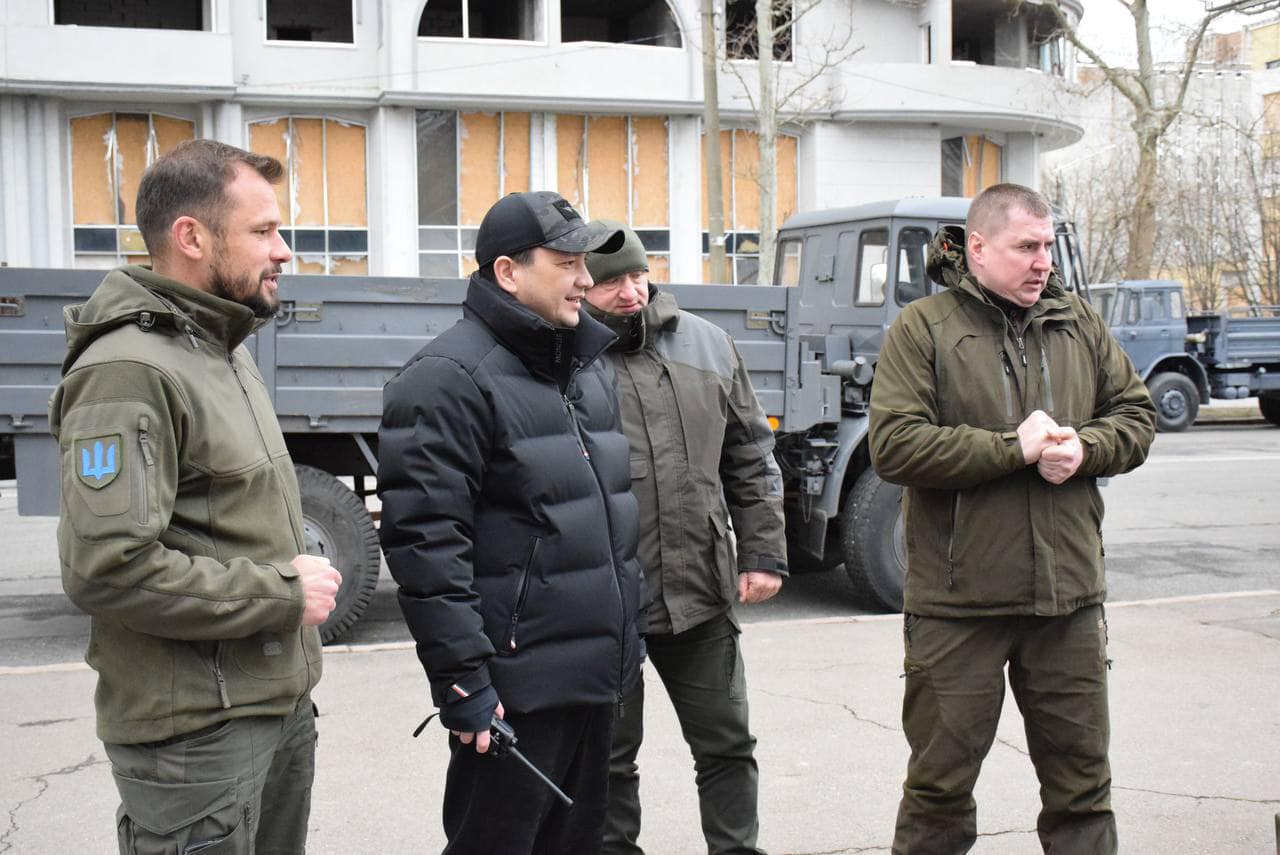
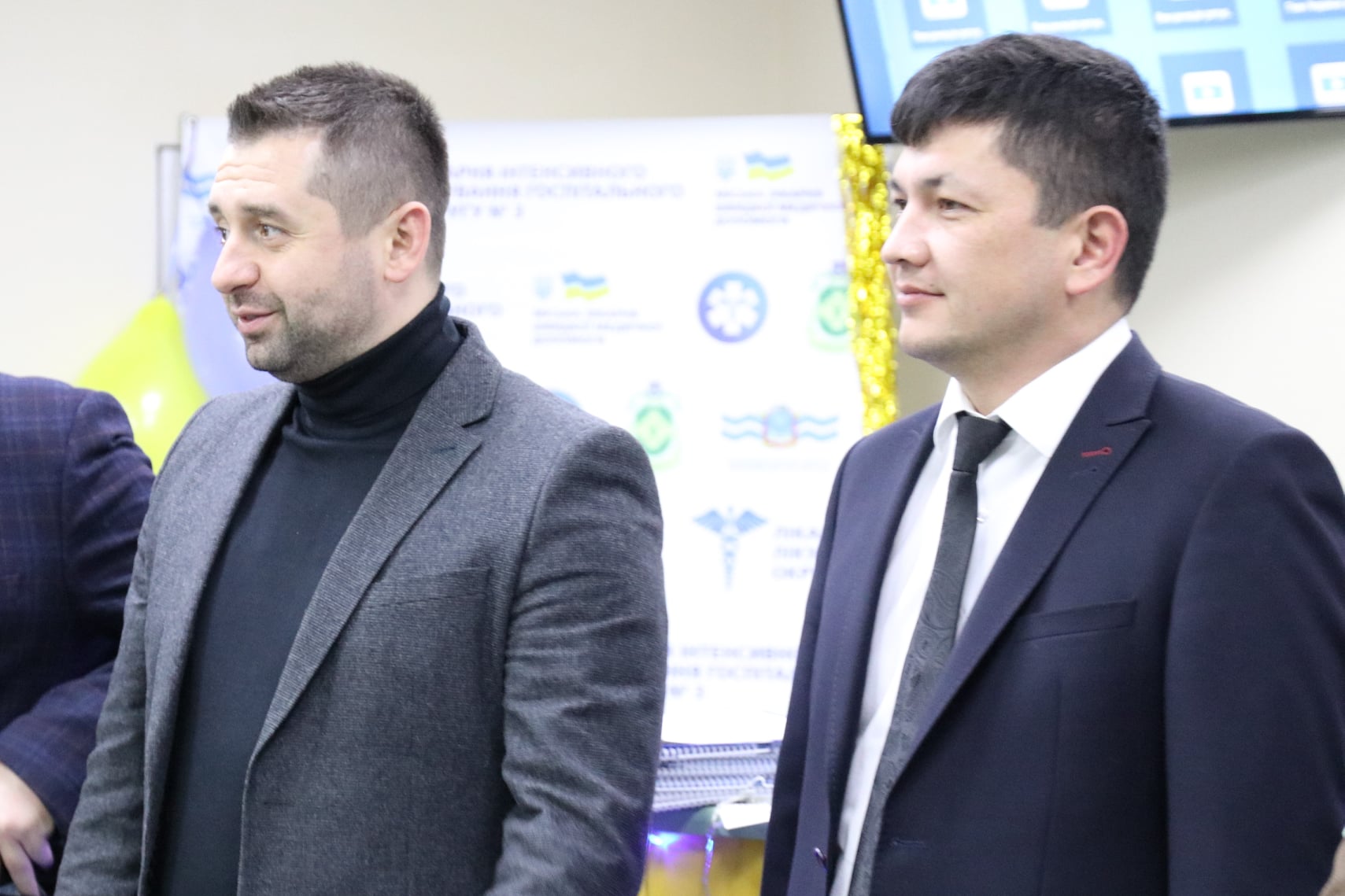
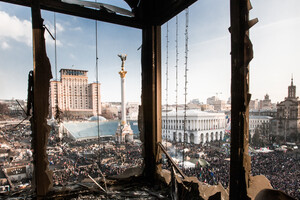
 Login with Google
Login with Google